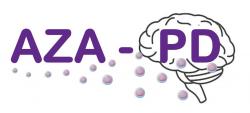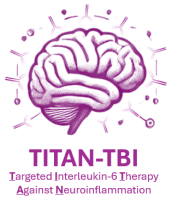Neuroscience trials

AZA-PD
Parkinson’s disease (PD) is a common neurodegenerative disorder affecting approximately 2% of those over 65 years. It is characterised by problems with movement including bradykinesia, rigidity, tremor and gait dysfunction, but also causes a wide…

CAM-THY
Multiple sclerosis is an autoimmune disease of the central nervous system in which focal lymphocytic infiltration leads to damage of myelin and axons. Initially, inflammation is transient and remyelination occurs, hence early in the disease…

CAM-VAC
Multiple sclerosis (MS) is an inflammatory demyelinating disease of the central nervous system that affects as many as 2.5 million people worldwide and 90,000 people in the United Kingdom. It is believed to arise from the interplay of polygenic…

CamProS-PC
Pineal cyst are cysts arising in the pineal gland. They are a common finding on MRI scans in the brain, seen in 10-40% in healthy individuals with no known neurological or psychiatric illness. The vast majority of the pineal cysts are…
CCMR One
Multiple sclerosis is an autoimmune disease of the central nervous system, in which focal lymphocytic infiltration leads to damage of myelin and axons. Initially, inflammation is transient and remyelination occurs; hence early in the disease…

CCMR Two
The greatest unmet need for people with multiple sclerosis is an effective therapy for the progressive phase. Current treatments suppress the damage caused by the immune system but there is only a limited window in which these can work.…

DAPA-PD
In Parkinson's disease (PD), there is inflammation in the brain, the gut and the blood, which is thought to contribute to the development and progression of the disease. The NLRP3 inflammasome is a complex of proteins which plays a critical role…

DefINe
Neuroferritinopathy is a disorder caused by a mutation (fault) in a gene which leads to iron gradually building up in the brain. The build-up of iron eventually leads to the death of brain cells (called neurons),…

REVIVE Trial
Leber Hereditary Optic Neuropathy (LHON) is a rare, inherited form of vision loss. Treatment options for vision loss from LHON remain limited and no therapies aimed at reversal of the defect are available. …

RilmHD
Huntington’s Disease is an autosomal-dominant cytosine-adenine-guanine (CAG) trinucleotide repeat-induced neurodegenerative disorder. The disease includes cognitive, psychiatric and motor dysfunctions. There are no known treatments to slow the…

STEM-PD
Parkinson’s disease (PD) occurs when an area of the brain begins to lose nerve cells that produce a chemical called dopamine. Dopamine is an important chemical, and one of its functions is that it helps to regulate body movement. The loss of…
SYNAPSE-FTLD
Frontotemporal dementia, primary progressive aphasia, progressive supranuclear palsy and corticobasal syndrome are incurable brain diseases. These illnesses have different root causes but have much in common in their distressing symptoms.…

The FELL-HD Trial
Huntington’s disease (HD) is a progressive, genetic, neurodegenerative disorder that affects approximately 5,700 people in the UK with 5 times as many at risk of having inherited the gene. Clinical features typically emerge at the height of…

TITAN-TBI
Too much inflammation in the brain is thought to worsen recovery after a head injury, and we think that reducing inflammation might improve patients' outcomes. This study is looking to understand whether treatment with an anti-inflammatory…






